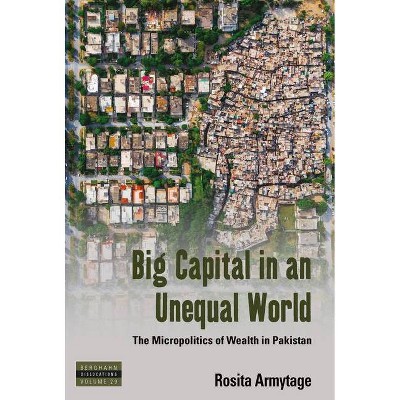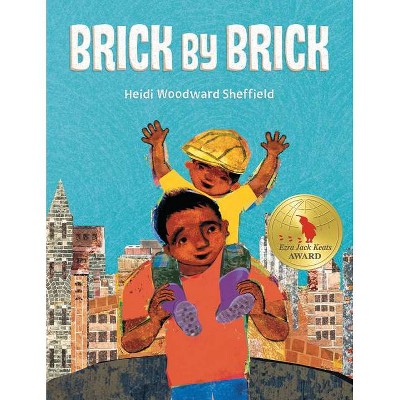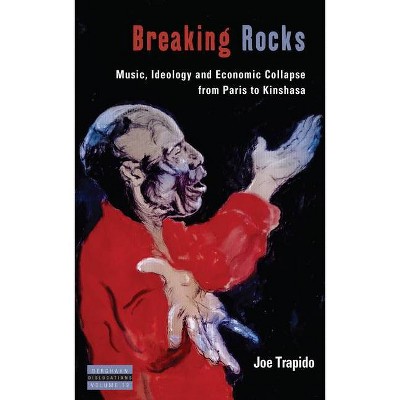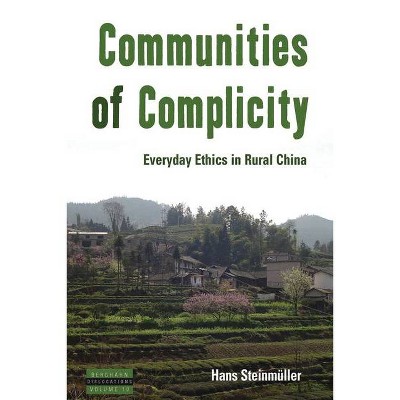Made in Sheffield - (Dislocations) by Massimiliano Mollona (Hardcover)
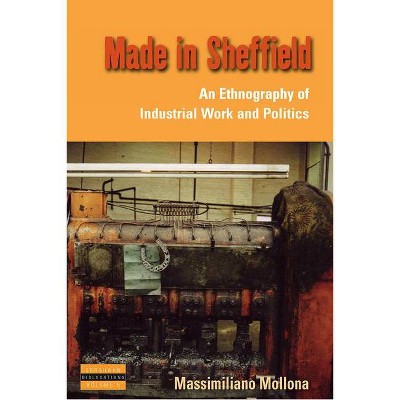
Similar Products
Products of same category from the store
AllProduct info
<p/><br></br><p><b> Book Synopsis </b></p></br></br><p>"The tale that Mollona tells is not a pleasant one...However, it is an important tale, not least because it reminds us that anthropologists in Britain have a long history, now mostly lost to mind, of research in the heartlands of industrial capitalism. Mollona shows us, once more, that we have worthwhile things to say about the lives, work, and situation of the British working class, and through these the political-economic situation in which they find themselves. One can only hope that other anthropologists will follow his lead." - JRAI <p>"His narrative of the embodied lives of the factory workers and their tools brings the theory of local and transnational networks of production to life. The book's real triumph lies in this subtle layering of experiential ethnographic narratives of production and economy. The political theory underpinning the account whilst challenging is, however, illuminating for a deeper reading of Mollona's argument. The reader's 'work' is rewarded by an argument which presents a valuable contribution to the field of political and industrial ethnography in contemporary neoliberal Europe." - Durham Anthropology Journal <p>In 1900, Sheffield was the tenth largest city in the world. Cutlery "made in Sheffield" was used across the globe, and the city built armored plate for the navy in the run-up to the First World War. Today, however, Sheffield's derelict Victorian shop floors and industrial buildings are hidden behind new leisure developments and shopping centers. <p>Based on an extended period of research in two local steel factories, this book combines a lively, descriptive account with a wide-ranging critique of post-industrial capitalism. Its central argument is that recent government attempts to engineer Britain's transition to a post-industrial and classless society have instead created volatile post-industrial spaces marked by informal labor, industrial sweatshops and levels of risk and deprivation that divide citizens along lines of gender, age, and class. The author discovers a link between production and reproduction, and demonstrates the centrality of kinship relations, child and female labor, and intra-household exchanges to the economic process of de-industrialization. Paradoxically, government policies have reinvigorated working-class militancy, spawned local industrial clusters and re-embedded the economy in the spatial and social structure of the neighborhood. <p>Massimiliano Mollona has been Lecturer in Social Anthropology at Goldsmiths College, London, since 2003. After an Italian Laurea in Economics, he received his Ph.D. and MSc in Anthropology from the London School of Economics. He is a co-editor of <i>Critique of Anthropology</i> and Reviews Editor of <i>Journal of the Royal Anthropological Institute (JRAI)</i>. His recent publications include 'Gifts of Labour. Steel Production and Technological Imagination in an Area of Urban Deprivation, Sheffield, UK' in <i>Critique of Anthropology</i>, 25(2) and 'Factory, Family and Neighbourhood. The Political Economy of Informal Labour in Sheffield, UK' in <i>JRAI</i>. (N.S.) 11. He has published widely on labour issues and steel production.<p/><br></br><p><b> Review Quotes </b></p></br></br><br><p> "<em>The tale that Mollona tells is not a pleasant one...However, it is an important tale, not least because it reminds us that anthropologists in Britain have a long history, now mostly lost to mind, of research in the heartlands of industrial capitalism. Mollona shows us, once more, that we have worthwhile things to say about the lives, work, and situation of the British working class, and through these the political-economic situation in which they find themselves. One can only hope that other anthropologists will follow his lead</em>." <b>- JRAI</b></p> <p> <i>His narrative of the embodied lives of the factory workers and their tools brings the theory of local and transnational networks of production to life. The book's real triumph lies in this subtle layering of experiential ethnographic narratives of production and economy. The political theory underpinning the account whilst challenging is, however, illuminating for a deeper reading of Mollona's argument. The reader's 'work' is rewarded by an argument which presents a valuable contribution to the field of political and industrial ethnography in contemporary neoliberal Europe.</i> <b>- Durham Anthropology Journal</b></p><br>
Price History
Price Archive shows prices from various stores, lets you see history and find the cheapest. There is no actual sale on the website. For all support, inquiry and suggestion messagescommunication@pricearchive.us

